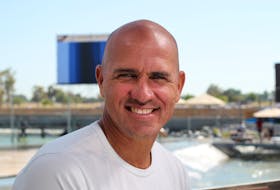By Alan Baldwin
(Reuters) - Jackie Stewart starts a chapter of his autobiography with a simple sentence: "Jim Clark was the finest racing driver of my era."
Few would disagree with the triple world champion, Britain's most successful racing driver until Lewis Hamilton rewrote the record book.
Even in one of the sport's most lethal decades, the death of the quiet Scottish farmer in a wet Formula Two race at Hockenheim triggered shock waves.
The 1963 and 1965 F1 world champion and Indianapolis 500 winner, with more grand prix victories (25) than anyone at that time, died instantly of a broken neck after his car left the track at 160mph and was catapulted into the trees.
He was 32, his career spent entirely with Lotus and lasting less than a decade.
As with Brazilian triple world champion Ayrton Senna, whose death at Imola in May 1994 was mourned by millions, so too an older generation never forgot the day they heard the terrible news.
"Of course we grieved, but there was always grief," New Zealander Chris Amon recalled years later. "When we lost him, there was another dimension to it, a selfish thing. His death frightened us.
"If it could happen to him, what chance did the rest of us have?"
A grim sequence followed: On May 7, Clark's British replacement Mike Spence crashed his Lotus at Indianapolis and died of head injuries. A month later, Italian Ludovico Scarfiotti perished in a hill-climb crash.
On July 7 French racer Jo Schlesser burned to death in his home Grand Prix at Rouen.
"Jimmy’s death at Hockenheim was the beginning of us really driving home the reality that has changed the entire world of Formula One," Stewart, a prominent safety campaigner, told Reuters on the 50th anniversary of Clark's death.
"He was almost bullet-proof. He drove in such a smooth and calculated way that he never over-drove. He was never a driver anybody would have ever thought would have died in a racing car.
"And suddenly the sport allowed that to happen, because there were no barriers and no protection from those trees that the car catapulted into."
A memorial stands at Hockenheim but the scene of the accident is now covered by trees, deep in the German forest.
Clark's gravestone, in the peaceful parish cemetery of the Scottish borders village of Chirnside, pays tribute to the local farmer who conquered the world.
(Reporting by Alan Baldwin in London, editing by Ossian Shine)








